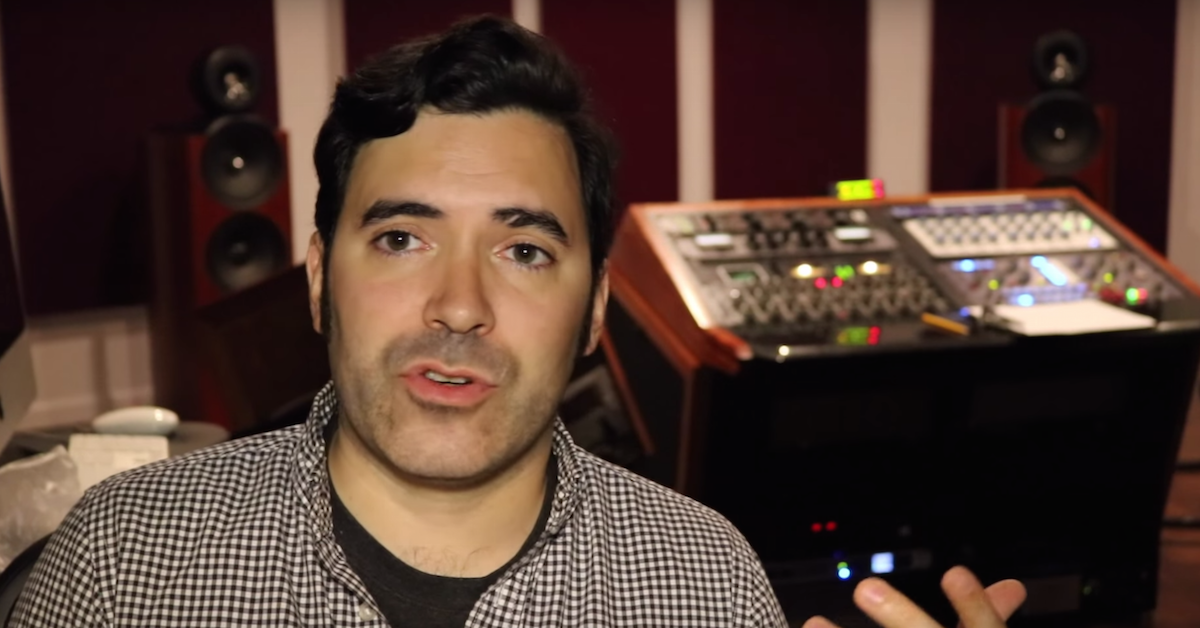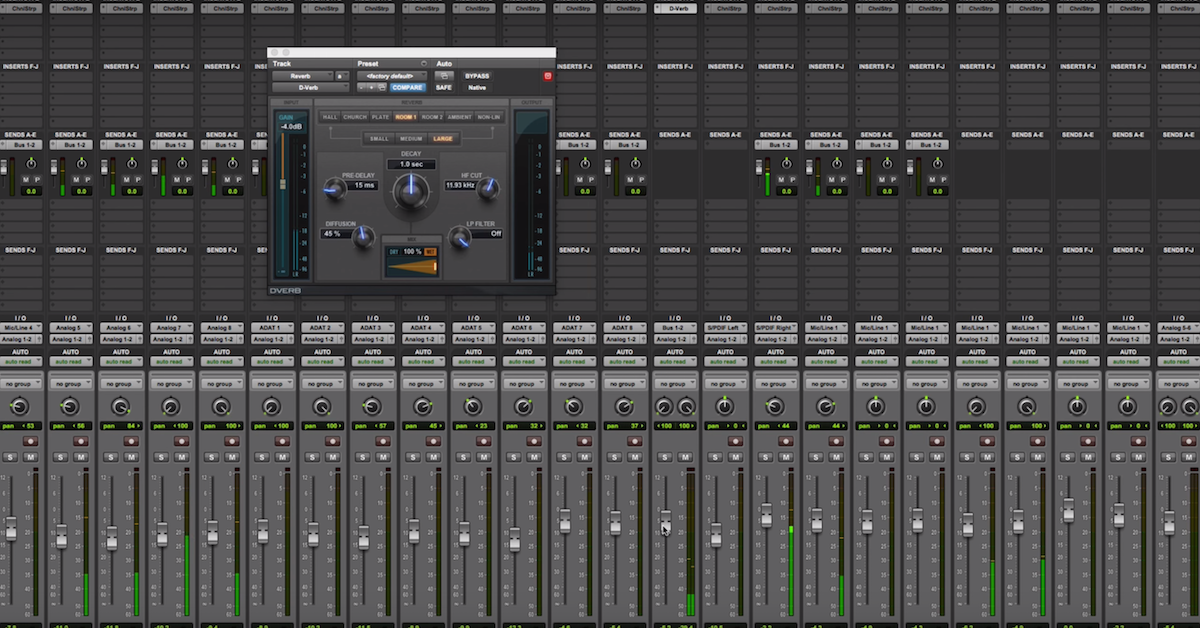Swimming Against the Current
Article Content
The Perpetual State of Subordination and How to Break Away
Pose a simple question to yourself: why are you pursuing a career in audio engineering? What is your final aim, goal, or ambition? This is an internal question and should be treated in such a way that will produce an outcome that ultimately pleases you. There is no arrogance, judgement, or miscommunication–you are talking to yourself, honestly asking, in which direction do I want my life to go? Once the question is posed, the answers are most often abundant–they may be lofty, but valid all the same.
When a final decision is made, the next step is getting started. I can only speak to my own perspective (and off-the-wall obstinate personality), but life does exist outside the so-called “music industry”–contrary to popular belief. Personally, when I think ‘outside the music industry,’ I envision a run-down, negative-capacity bar with wasted fifty-year-old rock star burn-outs reliving their youth on stage for eight dollars per hour. But, to keep things in a grander perspective, I then realize that the reason I see that picture in my head is not because it is the truth, it is only my perception of the truth. The same way that I have been programmed to perceive the “music industry” as a necessity, I have been programmed to view the anti-industry as a means of eventual destruction or conformity.
How Does This Apply to You?
Thinking outside-the-box is important in every aspect of life, but especially in one’s career path. Nobody wants a “career” for any other reason than to make money; whether or not that career doubles as a passion, hobby, or fantasy, it is still obtained with the primary aim of making enough money to sustain and provide oneself with a fulfilling life (if the economy were to suddenly become an optional non-necessity–say, aliens landed and gave every human Star Trek-style replicators–society would be at a loss for participants, and the value of a dollar bill would be that of a hundred-dollar bill–nothing).
Following this thought process involving sci-fi nihilism is very beneficial. Say these replicators have the ability to produce anything that has ever been made on Earth (including things made by replicators). If anyone can produce any amount of money, or any amount of any item of worth, then all currency and items will become financially valueless. So, if there were no system of currency or drive to do anything other than what a person wants to do, there would be no “music industry.”
Now, think about what you would aspire to if there were no music industry. What would you do with your time if your ultimate aim was not monetary gain? That’s the start of thinking outside-the-box. “Outside-the-box” is not a concept to be pulled out of the back drawer of your mind when you need it. It should be present all the time, inspiring constant dissonance and creation against the stale state of those who simply pursue monetary gain.
Where Can This Mindset Take You?
Honestly, the opportunities are limitless, no matter how much it may sound like something a washed-up career adviser would say. I want it to be recognized that this is not a call to action, merely a focused perspective on innovation, its value, and how it can be more consistently inspired. I encourage engineers that are in the audio profession strictly for its money and status to keep pursuing what will make them happy. But those who thrive on innovation and creativity (like I do) should try to consider the point I’m trying to make.
The “music industry” is not entitled to our subscription. It is a system just as subordinate and arbitrary as any other, and many people that pursue jobs in studios, production companies, agencies, or other industry-related employment end up working corporate paper-pushing positions just as they would if they had gotten a corporate job out of high school. As you can probably tell, I take personal offense to anyone that tries to tell me I “have to” do something. I control my life, just as anyone else does; I would like to encourage others in this same vain.
My favorite form of creativity is emotional free-flow (as a musician); as an engineer I simply take control of the mix, and then make it my bitch.
(perception is key–if you are confident, your work will reflect that. It’s as simple in audio engineering as it is in life; it may take some time to develop, but a bit of nihilism can help. Perceive the spectrum of human accomplishment as a field upon which every human and the art they produce is of equal value. All of a sudden, you’re stacking up a little better next to Chris Lord-Alge. Perspective is a powerful human psychological force that can make or break any project with which you are involved.)
Here are a few mixing tips to inspire a creative, open, and innovative perspective:
- Mix songs as they “should” be mixed harmonically (find the fundamental frequencies of each instrument and carve out harmonic holes to give the instruments places to settle). Then, once you have control of the mix harmonically, is when the actual creative process begins (to that point, it’s all glorified janitorial work). Once you reach the point of “this is how they like it,” take it three times further and develop your own sound. Just by going above and beyond, you will gain confidence and find little tricks that will blow people away.
- When working on an album, think about the album as a really long song. Within songs, transitions between sections are very important–they should be fluid and precise–an album is no different. Plan transitions between songs while you are still in the recording process. To those who embrace innovation, I would encourage a separation from the “single” mentality and create intriguing ways to transition between songs (personal side-note–I’m calling out all engineers who put silence between the majority of the tracks they produce so that the songs are easily digestible, radio-ready singles. This is nonsense; plain and simply stated–if you are really creative you will not only make bad-ass transitions between songs on the albums rather than constantly over-using fade-outs, you will do it so well that even with the transitions it works perfectly for radio. Now how’s that for art over an assembly line?) This approach will also provide more options in the mastering process, because the tracking and mixing engineers will be more conscious of album continuity before mastering even begins. (Once again, rather than a collection of songs written over a random time-period, the album is a singular work with a theme and purpose–if not, it is made to act as such)
- Don’t be afraid of dissonance or distortion. Do you know how a lot of blues artists have that “tone” to their vocals that isn’t quite raw, but isn’t totally clean either? That’s from over-driving the output transformer of a preamp or compressor. Harmonic distortion is an infinite abyss to explore all its own.
- Lastly, if there is an accepted rule for what should be done to an instrument (i.e. no reverb on bass, lock the kick and bass, compress this, EQ that, etc.), fight it! Find out exactly how well those preconceived notions hold true when put to the test. Experiment! You only have so much time in life, don’t spend it trying to be like everyone else!
These processes take time like all things, but are very helpful when exploring mixes, tracking sessions, and even the mastering process. If you keep an open mind, you will create more opportunities for yourself, besides the opportunities you track down and conquer. Good luck fellow audio-heads!






